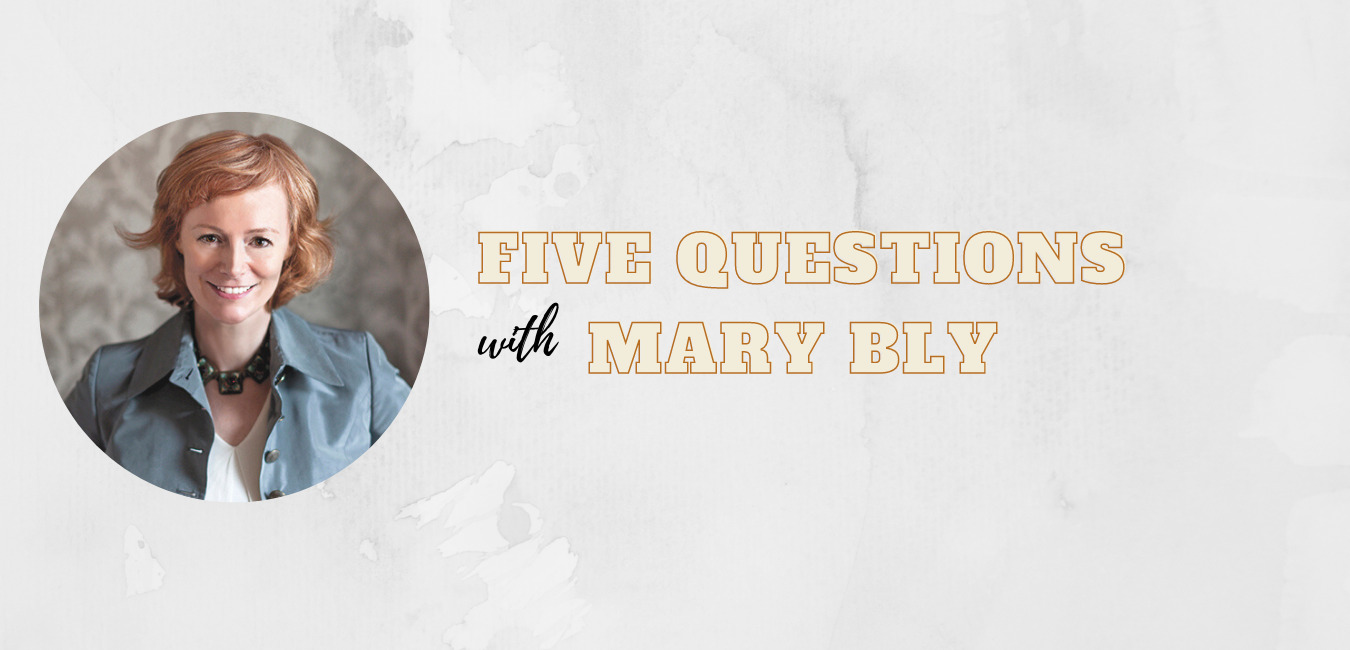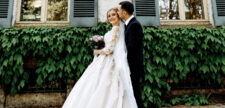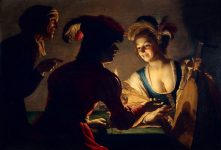Five Questions with Mary Bly/Eloisa James
Mary Bly/Eloisa James. I’m having so much fun connecting with all the smart authors and bloggers I’ve met online. This is the latest entry in my series of conversations with other romance authors, who join us to share about their creative process, their habits, their inspiration, and more. Our guest today is Mary Bly who is a New York Times best selling author and writes under the pseudonym Eloisa James. She will be joining me on the panel of the Gender Feminism, Sexuality, and the Romance Novel Symposium in February.
1) You come from a very literary family. Your father was a poet and your mother a short story writer. You were probably exposed to a lot of writing, and so what made you fall in love with the romance novel?
Mary Bly/Eloisa James: The simple answer is that I love a happy ending. I’ve always loved the romance genre best, even when I was just a girl in a house full of literary writers. But a more complicated answer is that romance has a rhythm and a promise to it that appeals to me. Romance reminds me that if there’s a pattern to the universe, it’s one shaped around and by love. We can all use that reminder now and then.
My parents were, as you say, literary writers and they did not understand my interest in romance. My mother, Carol Bly, never reconciled herself to my writing career. My father, Robert Bly, is a poet; his reaction was more bemused pride. I don’t have a talent for writing literature; my gift is in writing entertaining, funny fiction meant for entertainment rather than moral impact. I’m Garfunkle, born into the Bach family. I’ve learned to live with it.
2) Why did you decide to write with a pseudonym?
Mary Bly/Eloisa James: I wrote my first book as an assistant professor at Washington University in St. Louis. Young professors are expected to spend all of their spare time working on scholarship, not writing genre fiction. I kept my writing private until I had tenure at Fordham University and had hit the New York Times bestseller list.
3) You write romances in the Regency era. Why do you feel drawn to write about that era and what makes it unique?
Mary Bly/Eloisa James: I’ve written romances set in both the Regency and Georgian periods, but I started in the former. Regency romances are written in a particular world based on imitation. At the very bottom rung of a mimicry ladder, if one could call it that, one can see Jane Austen. Far more important for modern romance is the world of Georgette Heyer; most regency romances are written in imitation of Heyer, who created a world and style of behavior that is not strictly historically accurate. I try to create a balance between the beloved conventions of historical romance (my dukes tend to be latent feminists), and historical reality.
4) You have written a few different articles in defense of the romance novel being a relevant and real literary genre. Why do you think romance novels are considered less ‘literary’ than other forms of fiction?
Mary Bly/Eloisa James” A profound cornerstone of this problem is equivocal attitudes in popular culture towards women’s desire. There’s a lot of fear; you see articles to this day insisting that women should stop reading romance because it makes them dissatisfied with their husbands. Well, sure—if a husband is disrespectful, filthy, or abusive, a woman might take a look at him and think, I can do better. But most of the time, romance is an escape that actually makes “regular” married life easier.
As a Shakespearean, I’d say that there is a true difference between great literary fiction and romance. Romance offers an escape. It doesn’t seek to challenge its readers or change their worldviews (unless the reader happened to be an abusive man). But the best literary fiction can change a person’s way of living and mode of thinking. Catch-22, for example, is a novel that changed America’s attitude toward war by portraying what it was like to be in the air force in World War II. No romance will do that.
5) You have a book club where you have readers who discuss your books online. Has their feedback given you new insights into what they like in your novels? Do you have any advice for other authors who might want to connect more with their readers?
Mary Bly/Eloisa James: Connecting with readers is one of the best parts of being a published author. I am so grateful for the way they sustain me with their kindness in email and on Facebook, as well as the incredible satisfaction of hearing that one of my books helped someone going through a tough time.
The obvious way to connect with readers is through social media. The book culture seems increasingly author-driven, so an author’s presence on Facebook, Twitter, etc. becomes tremendously important. My books have altered as they’re being written due to interaction with readers. It doesn’t make an author’s life easy. This kind of exposure has its own toll on creativity; if you read a passionately negative reader review, you can easily lose faith in the page you wrote that day.
My new favorite connection is litsy, an app that is just for readers. You can’t buy a book through it, and it’s not owned by Amazon. It’s a book community for people who love to read, with no possibility of advertising. I really enjoy it — it allows me to be a reader as well as a writer!
See also: Five Questions Series
 Special thanks to Mary Bly/Eloisa James for participating in this series! To find out more, visit her website. You can also follow her on Twitter (@EloisaJames), Facebook, and Instagram. Her next book Seven Minutes in Heaven will be released on January 31, 2017. You can preorder it on Amazon, Barnes and Noble, iBooks, Google Play, and Kobo. You can purchase her most recent book, My American Duchess on Amazon, Barnes and Noble, iBooks.
Special thanks to Mary Bly/Eloisa James for participating in this series! To find out more, visit her website. You can also follow her on Twitter (@EloisaJames), Facebook, and Instagram. Her next book Seven Minutes in Heaven will be released on January 31, 2017. You can preorder it on Amazon, Barnes and Noble, iBooks, Google Play, and Kobo. You can purchase her most recent book, My American Duchess on Amazon, Barnes and Noble, iBooks.
Categorised in: Five Questions Series, Love
This post was written by Julie Tetel Andresen




1 Comment